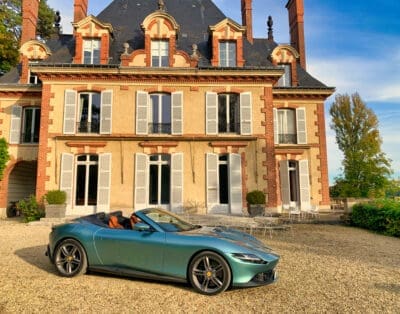Luxury Public Relations & Marketing: Brand Transparency, Authenticity & Ethos
The internet has changed transparency for ever. Now there is a vast amount of information to be found about every brand, from mainstream media, blogs, reviews, forums, comments and trust sites. This has been a boon to luxury companies that are willing not only to engage directly with customers but to share their company values and processes. Companies that take a deeper stand on culture, society and the environment are performing better than their less conscientious counterparts.
Sharing company history, journey and story is key to building a credible digital footprint. Honesty is vital and pays off in spades in customer loyalty to a brand. A luxury company is very different to a mass market one. You are selling products that are positioned at the highest price point, so a genuine case of superior quality, original design, exceptional materials and fine craftsmanship must be presented. Sharing the process of developing both the brand, the products and the company ethos goes a long way to raising your brand value.
Forums are vital in niche markets with a well informed client base such as the car, watch and yacht industry. Users freely exchange opinion on brands and these form a library of information that all potential buyers are exposed to. Peer review is extremely influential and those companies that engage honestly with their customers perform far better in these forums than brands that ignore them. Everything about a company is now available with just a little online digging and forums tend to come up high in search engines. Over the next decade those luxury companies that seek a closer, personal connection with customers will reap the greatest rewards.
When these values of authenticity and transparency have been genuinely established then the public relations and marketing message is clear. The clearer the message, the easier it is to communicate effectively. The stories around the brand and its products will always be on message as a luxury company sticks to its core values in a consistent manner. These stories will resonate and engage the target audience who come to identify with your company and its approach. The medium must be consistent too, partnering with platforms and voices that connect with the right audience that shares the same values.
The role of luxury PR is to find the best stories around the brand, creating engaging messages that excite and inspire both media and customers, whilst also advising companies on best practices, product development and core ethos. Encouraging parity between the company and its audience on every level. The best luxury PR companies are themselves curators of quality and carefully select clients that satisfy stringent guidelines of craftsmanship and manufacture. It is also the PR company’s role to guide new companies so that they fulfil the requisite attributes of a luxury brand.
Another essential factor for brands is establishing trust with media, offering journalists wider access to company information so a bond is formed. This engenders lasting relationships with media partners, who will always turn to you first when expert opinion or comment is needed. Trust is more vital than ever for media in the luxury sector. In the end a luxury purchase is always an emotional one, but clients who are the best informed about a brand prior to purchase often express the most delight and satisfaction months or years later, becoming lifelong brand advocates, avoiding buyers remorse. This is why brand communication is a continuous process and why so many brands strongly promote their heritage and longevity.
Some companies wish to appeal to all, which has become ineffective in an increasingly polarised world. Brands must now take a position and stand by it. The fence is no longer a stable business environment. Gen X, Millennials, Gen Y and Gen Z buyers in particular want to know that a company has ethics and pursues more than just profit. Sharing the company’s ethos as well as manufacturing skills will be the deciding factor in luxury purchases over the next decade.
Some of the most opaque industries are beginning to see a downturn for their services. Financial companies that rely on making their products confusing are facing a backlash as people demand clearer explanations of the performance of their products, their profit margins and the risks. Hedge funds, banks and stock brokers, that relied on the ignorance of buyers, are now in competition with tech companies that not only disrupt through innovation by automating processes more efficiently, but are willing to disclose their revenue stream.
As in the financial sector, the watch industry is going through incredible changes. Rolex, still regarded as a luxury watch brand whilst selling around a million watches annually, typically has a ten to one markup on its products. A substantial proportion of this margin goes to advertising and marketing and half again to sales distributors. So most of the purchase price is in the badge, rather than in the watch on your wrist. Though this high status and wide recognition means that Rolex watches depreciate less than any other watch brand. However today you will find many niche luxury watch makers who have challenged this model by offering watches with only a two to one mark up, passing more value on to the buyer. Providing excellent quality that they sell uniquely online to avoid higher costs.
High profit margins are not as widespread in the luxury industry as many assume. The yacht industry is a fascinating case in point. Yes there are yacht companies out there with big markups, but some have margins that are only around 8%, like Pendennis Shipyard, who build and refurb the largest superyachts in the world. Pendennis rely on the vast experience of their directors, managers and craftsman to get every project perfectly costed, which means they are very competitive. They have built a reputation over 30 years of delivering huge projects on time and on budget. They also invest heavily in their workforce, through training and incentives. It’s this kind of transparency that customers are increasingly looking for and the internet is taking us towards that economists dream of perfect buyer knowledge.
Bentley motors are another fine example of a trusted brand that places authenticity, craftsmanship and dedication to quality at the core of their brand values. They do of course benefit from being part of VW, the world’s second largest car maker after Renault-Nissan-Mitsubishi. One advantage being that all the research and development that goes into their luxury cars benefits every division at VW. So however expensive a Bentley may seem, much of the cost of new technology and enhancing the luxury interiors is offset and passed on to other car models in the group later on. Also Bentley serves as the flagship of the group which has enormous value in so many different areas, such as brand perception, association, market position and media recognition. A flagship product is essential in the formation and marketing of any luxury brand.
Culture has become an important part of the core ethos of luxury brands. As the world battles greater polarisation it has become essential to take a stand. Climate change is one of the biggest challenges we face and if your company fails to address it openly, then it will be overtaken by those that do. Any future forward company has to have a position on climate change if they import from abroad, use plastic packaging or employ rare materials or minerals in their fabrication. If you don’t have an eco friendly product, your competitors soon will!
Most people take pride in doing things well and admire others who do too. People are keen to share brands that inspire them, who put quality and people first. Then communicating with media becomes a simple process of creating engaging stories around your brand, one you are already proud to talk about and share. Plus these stories will resonate with an audience that values honesty and will reward you with loyalty, even becoming mavens for your brand themselves.
The stories themselves are vital; tone, voice and message must be right and couched in the same language as your customers. People want to buy products from brands they trust, that deliver value and quality. Authenticity means a dedication to high manufacturing standards, creativity and a unique approach to design. It’s a commitment to building the finest products possible, whatever the cost. People buy brands they are familar with, that they identify with and aspire to. Value and ethos command respect that cannot be bought, but delivers in terms of long term sales and profits.
http://excellencegroup.co.uk/







